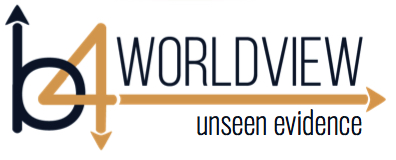
Key Thought for this session:
“Faith is the evidence I cannot observe for the truth that I must act on.”
This distinction between “eido” knowledge and “gnosis” knowledge can be a little confusing to understand for most people. Just in case you are struggling for clarity with this distinction, let’s try to explain it another way,... from the beginning.
We've been trying to ponder what knowledge is exactly. And in our study, we have realized there is more than one type. So, to distinguish these two types, we've been using the two terms for this from the classic literature: eido knowledge and gnosis knowledge. Let’s think for a minute about how would we compare these two Greek words to the more common English words: “facts” and “wisdom.”
“FACTS” are things you can look up about something, or things you are told about something, or things you observe, often through some type of scientific measurement about something. But facts all by themselves are not very useful. We need to know what to do with those facts so that they can be used to bring about a desirable outcome. That’s where wisdom comes in. Wisdom tells us which facts are useful to us, why they are useful, and how to put them together to properly inform our understanding of those facts, so then we will know how to act.
So, to help you with a way to think about the distinction between eido knowledge and gnosis knowledge, consider eido knowledge as the FACTS you might collect about something and gnosis as the WISDOM you use to know what to do with those facts.
But where does wisdom reside? Can you see it? Can you touch it? Where does this wisdom (or gnosis) come from? Well, it doesn't come from books, it doesn’t come from a Google search, or from an observable measurement—because then it would be eido knowledge. The gnosis comes from some unmeasurable source such as when it is accumulated from a variety of experiences to form a reliable “gut” feel in you for how to properly understand something. For some, gnosis can be revealed to them by God through the working of the Holy Spirit. For some, gnosis can be inherited from someone they trust a lot, when that trusted person says something like, “Let me tell you how it really is,” or “Here is a rule of thumb you can count on in situations like this,” or “In situations like this, my instincts tell me we should do this.”
One final thought here...although all wisdom is gnosis knowledge, not all gnosis knowledge is wisdom. Not all gnosis knowledge will lead us to right conclusions. True wisdom will always reliably lead us to a successful outcome. Not all gnosis knowledge is so reliable. A person may be using faulty gnosis knowledge and just not know it. Nevertheless, it is still the gnosis knowledge they use to determine what to do in certain situations, and as such, that gnosis knowledge may not be all that wise.
Just remember, your eido knowledge is your knowledge of the facts, and your gnosis knowledge is more your knowledge of how to apply the facts.